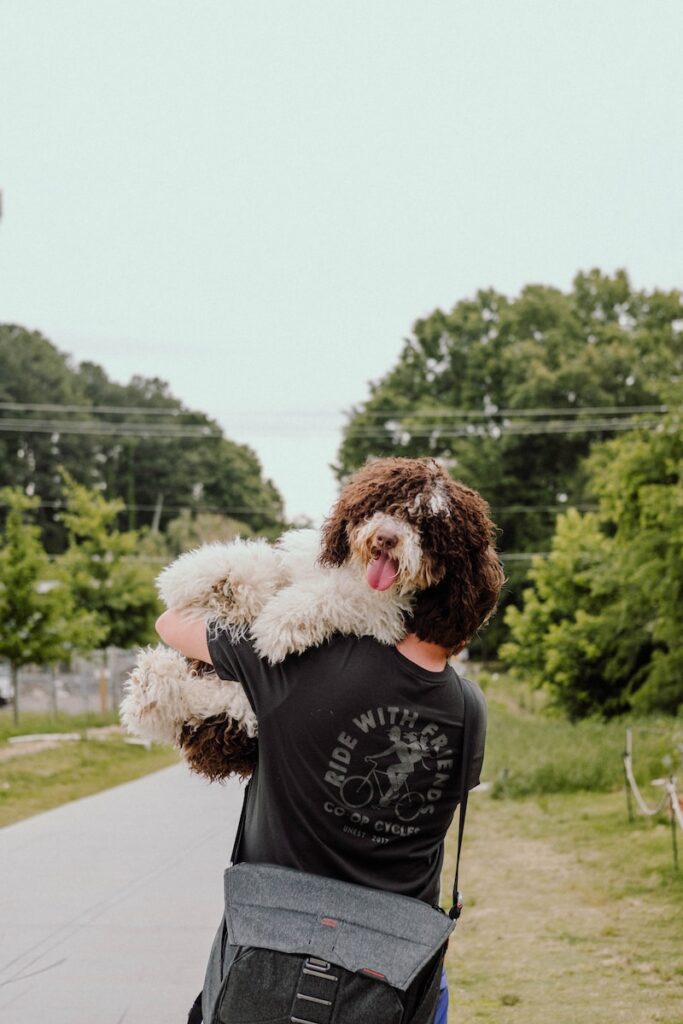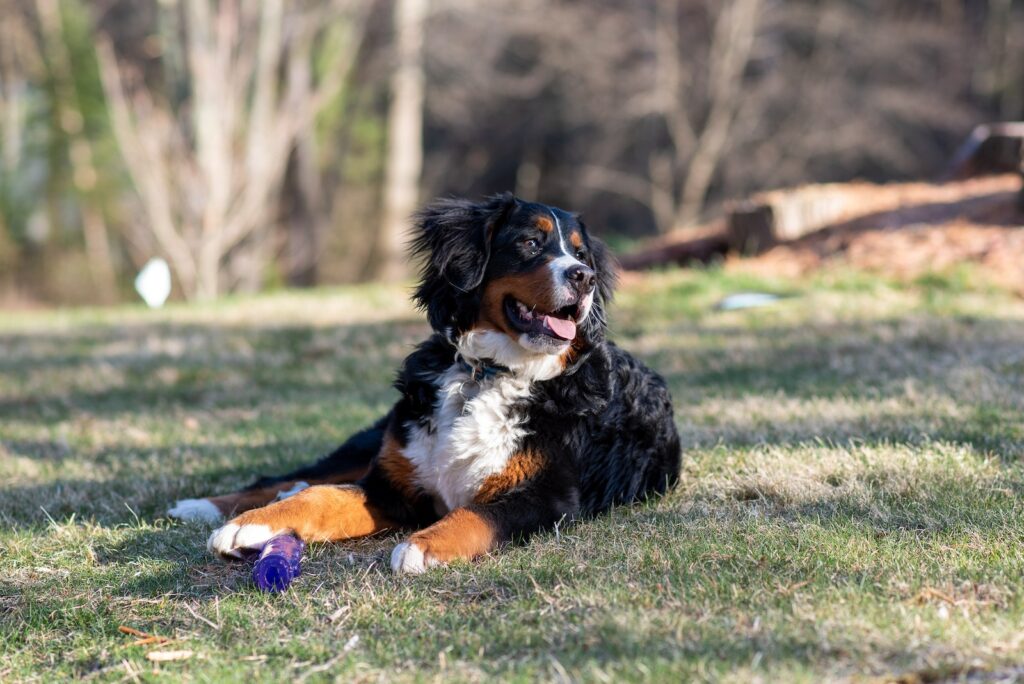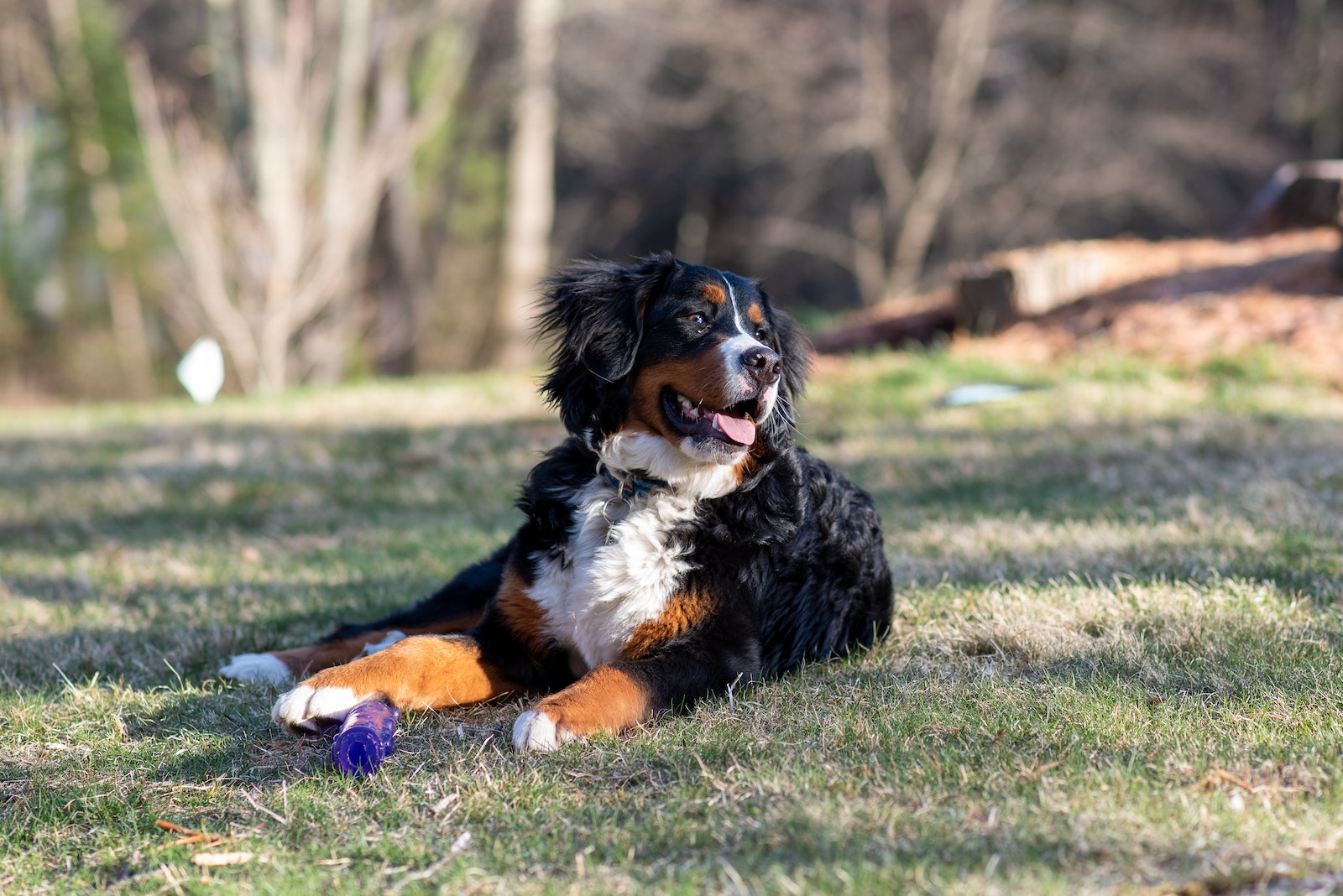The Complete Guide to Bernedoodle: Everything You Need to Know
Looking to bring a Bernedoodle into your life? Our complete guide covers everything you need to know about this adorable, intelligent breed. From their origin and types to health and grooming, get all your Bernedoodle questions answered here.
Table of Contents
Introduction
So, you’re thinking about bringing a Bernedoodle into your life? Well, you’re in for a treat—or should we say, a “pawsome” experience! Bernedoodles are a delightful mix of the Bernese Mountain Dog and the Poodle, combining the best of both worlds. They’re known for their playful demeanor, intelligence, and low-shedding coats. But before you jump into this furry adventure, it’s crucial to know what you’re getting into. This comprehensive guide aims to cover everything you need to know about this adorable breed, from their origin and temperament to their health needs and lifestyle requirements.
Bernedoodles are not just another cute face in the dog park; they are a commitment that comes with responsibilities. Understanding the breed’s characteristics, needs, and potential challenges will help you decide if a Bernedoodle is the right fit for your family. Whether you’re a first-time dog owner or a seasoned pet parent looking to add another four-legged member to your pack, this guide is your go-to resource for all things Bernedoodle.
In the sections that follow, we’ll delve into the nitty-gritty details of what makes a Bernedoodle tick. We’ll explore their types, physical characteristics, and temperament. We’ll also discuss their health and lifespan, diet and nutrition, and much more. So grab a cup of coffee, sit back, and let’s embark on this journey to discover if the Bernedoodle is the dream dog you’ve been searching for!
What is a Bernedoodle?
If you’re wondering what exactly a Bernedoodle is, you’re not alone. This relatively new breed has been gaining popularity for its unique characteristics and lovable nature. A Bernedoodle is a hybrid dog, a mix between a Bernese Mountain Dog and a Poodle. This combination results in a dog that’s not only adorable but also highly intelligent and less shedding than other breeds, thanks to the Poodle genes.

Origin of the Bernedoodle
The Bernedoodle is believed to have originated in 2003, although the exact details are a bit fuzzy. The goal was to create a companion dog that maintained the Bernese Mountain Dog’s calm, friendly demeanor and the Poodle’s intelligence and hypoallergenic coat. The result? A dog that’s quick to learn, easy to train, and a joy to have around the house.
Types of Bernedoodles
When it comes to Bernedoodles, there’s more than meets the eye. They come in different sizes: standard, miniature, and tiny, depending on the type of Poodle used for breeding.
- Standard Bernedoodle: These are the largest of the Bernedoodles, weighing between 70-90 pounds. They are bred from a Standard Poodle and a Bernese Mountain Dog.
- Miniature Bernedoodle: A bit smaller in size, these weigh between 25-49 pounds and are bred from a Miniature Poodle and a Bernese Mountain Dog.
- Tiny Bernedoodle: The smallest of the bunch, these little guys weigh between 10-24 pounds and are bred from a Toy Poodle and a Miniature Bernedoodle.
Physical Characteristics
Bernedoodles are often described as ‘teddy bear-like,’ and for a good reason. Their wavy or curly coat, which can come in a variety of colors, gives them a cuddly appearance. They usually have dark, expressive eyes that seem to understand every word you say. Their lifespan ranges from 12-18 years, depending on various factors like health and size.
Understanding the different types and characteristics of Bernedoodles can help you make an informed decision about which size and type would fit best with your lifestyle and living situation. After all, a happy dog means a happy owner, right?
Temperament and Personality Traits
If you’re considering bringing a Bernedoodle into your home, it’s essential to understand their temperament and personality traits. These dogs are known for their friendly and affectionate nature, making them excellent companions for families, singles, and seniors alike.
Social Butterflies
Bernedoodles love to be around people. They are social dogs that enjoy the company of humans and other animals. This makes them great for families with children and other pets. Their friendly disposition also means they are generally good with strangers, although early socialization is crucial to develop this trait.

Intelligent but Stubborn
Thanks to their Poodle heritage, Bernedoodles are incredibly smart. They pick up on commands quickly, which makes them relatively easy to train. However, their intelligence can sometimes translate into stubbornness. They may try to outsmart you, so consistent training from a young age is essential.
Affectionate and Loyal
One of the most endearing qualities of a Bernedoodle is their loyalty and affection towards their owners. They often form strong bonds with their human families and can be quite protective. This loyalty and love make them excellent emotional support animals and even therapy dogs.
Activity Level
Bernedoodles have a moderate activity level. They love to play and need regular exercise to keep them healthy and happy. However, they are not as hyperactive as some other breeds, making them suitable for apartment living as long as they get enough exercise.
Understanding the temperament and personality traits of a Bernedoodle can help you determine if this breed is the right fit for your lifestyle and family dynamics. Their friendly and affectionate nature, combined with their intelligence, makes them a joy to have around, but they do require consistent training and socialization.
Health and Lifespan: What to Expect
When it comes to the health and lifespan of a Bernedoodle, there are several factors to consider. Generally, Bernedoodles are healthy dogs with a lifespan ranging from 12 to 15 years. However, like all breeds, they are prone to certain health issues.
Genetic Health Issues
Bernedoodles can inherit health problems from both the Bernese Mountain Dog and the Poodle sides of their lineage. Some of the common genetic health issues include hip dysplasia, elbow dysplasia, and certain skin conditions. It’s crucial to get your Bernedoodle from a reputable breeder who tests for these conditions.
Diet and Nutrition
Proper diet and nutrition play a significant role in the health and lifespan of a Bernedoodle. Feeding your dog high-quality dog food that is appropriate for their age, size, and activity level is essential. Be cautious of overfeeding, as obesity can lead to other health problems like diabetes and joint issues.
Exercise and Mental Stimulation
Regular exercise is vital for a Bernedoodle’s physical and mental well-being. A lack of exercise can lead to obesity and behavioral issues. Mental stimulation is equally important; puzzle toys and training sessions can keep their minds sharp.
Regular Vet Check-ups
Routine veterinary care is essential for any dog, and Berne doodles are no exception. Regular check-ups can help catch any potential health issues early. Vaccinations, flea and tick prevention, and dental care are also important aspects of maintaining your Bernedoodle’s health.
Grooming and Skin Care
While Bernedoodles are relatively low-shedding, they do require regular grooming to keep their coat healthy. Regular baths, brushing, and occasional trims can help prevent skin issues and matting. Pay attention to their ears and paws as well, as these areas can be prone to infection.
Understanding the health and lifespan of a Bernedoodle allows you to take proactive steps in caring for your dog. From regular vet visits to a balanced diet and exercise, there are many ways to ensure your Bernedoodle lives a long, healthy life.
Training and Socialization: Setting Up for Success
Training and socialization are critical aspects of raising a well-behaved and well-adjusted Berne doodle. These dogs are known for their intelligence and eagerness to please, which makes them relatively easy to train. However, they can also be a bit stubborn, so it’s essential to approach training with the right strategies.

Positive Reinforcement Techniques
Bernedoodles respond best to positive reinforcement techniques. This means rewarding good behavior with treats, praise, or playtime, rather than punishing bad behavior. Negative reinforcement can lead to fear and anxiety, which are counterproductive to training.
Socialization from a Young Age
Socialization should start as early as possible. Expose your Berne doodle puppy to various environments, people, and other animals to help them become well-rounded adults. Lack of proper socialization can lead to behavioral issues like aggression or extreme shyness.
Basic Commands and Obedience
Teaching your Berne doodle basic commands like sit, stay, and come is crucial for their safety and well-being. Obedience training can also help you manage your dog better and strengthen your bond with them. Group classes or one-on-one training sessions can be beneficial.
Leash Training
Leash training is another essential skill for Berne doodles. These dogs are strong and can be excitable, so teaching them to walk nicely on a leash can make walks more enjoyable for both of you. Start with short sessions and gradually increase the duration as your dog gets more comfortable.
Advanced Training and Dog Sports
Given their intelligence and energy, Bernedoodles often excel in advanced training and dog sports like agility, obedience competitions, and even herding events. Engaging in these activities can provide excellent mental and physical stimulation for your dog.
Behavioral Issues and Solutions
Like any breed, Bernedoodles can develop behavioral issues. Common problems include separation anxiety, excessive barking, and digging. Consult a professional dog trainer if you’re struggling with behavioral issues, as these can often be resolved with the right training techniques.
Training and socialization are ongoing processes that require time, patience, and consistency. However, the rewards are well worth the effort, as a well-trained and socialized Berne doodle is a joy to have as a part of your family.
Adoption vs. Buying
Pros and Cons of Adoption
Adopting a Bernedoodle can be a rewarding experience, as you’re giving a home to a dog in need. Adoption is generally less expensive than buying from a breeder and often includes initial veterinary care like vaccinations and spaying/neutering. However, adoption may come with its own set of challenges, such as unknown health issues or behavioral problems.
What to Look for in a Breeder
If you decide to buy a Berne doodle, it’s crucial to find a reputable breeder. Look for breeders who are transparent about the health of the parent dogs, offer a health guarantee, and are willing to answer all your questions. A good breeder will also want to know about you to ensure that their puppies are going to good homes.
Cost of Owning a Bernedoodle
Initial Costs
The initial cost of a Berne doodle can range from $800 to over $4000, depending on the breeder and the puppy’s lineage. This cost generally includes initial vaccinations and vet check-ups.
Ongoing Expenses
Owning a Bernedoodle doesn’t stop at the initial purchase. You’ll need to budget for food, grooming, regular vet visits, and unexpected health issues. The annual cost can range from $500 to $3000, not including emergency medical expenses.
Traveling with a Bernedoodle
Preparations and Precautions
Before hitting the road with your Bernedoodle, make sure they are comfortable with car rides. Pack essentials like water, food, and a first-aid kit. Always secure your dog with a seatbelt harness for safety.
Recommended Travel Accessories
Invest in a good-quality travel crate, portable water bowls, and chew toys to keep your Bernedoodle entertained during the journey.
Common Questions About Bernedoodles
Are They Hypoallergenic?
Bernedoodles are often marketed as being hypoallergenic, but no dog breed is 100% hypoallergenic. However, their curly coats do tend to shed less, which can be beneficial for people with allergies.
Are They Good for First-Time Dog Owners?
Bernedoodles are generally easygoing and friendly, making them suitable for first-time dog owners. However, they do require consistent training and socialization.
The Complete Guide to Bernedoodle: Everything You Need to Know
Summary of Key Points
Bernedoodles are a cross between a Bernese Mountain Dog and a Poodle, known for their intelligence, friendliness, and low-shedding coats.
Final Thoughts on Why a Bernedoodle Might Be the Right Breed for You
If you’re looking for a smart, friendly, and versatile dog that is great with families and requires moderate exercise, a Bernedoodle could be the perfect match.
Conclusion
Summary of the Article
This article aims to be a comprehensive guide to understanding Bernedoodles, covering everything from adoption and buying options to the costs involved and travel tips.
Final Thoughts and Recommendations
If a Bernedoodle aligns with your lifestyle and you’re willing to invest in their training and care, they can make a wonderful addition to your family.
FAQs
- How big do Bernedoodles get?
Bernedoodles can vary in size, but they generally weigh between 50 and 90 pounds. - Are Bernedoodles good with kids?
Yes, they are known for being great with children, thanks to their gentle and friendly nature. - How often should I groom my Bernedoodle?
It’s recommended to groom your Bernedoodle every 6-8 weeks, depending on their coat type. - Do Bernedoodles need a lot of exercise?
They require a moderate amount of exercise, usually a couple of walks and some playtime each day. - Are Bernedoodles hypoallergenic?
While no dog is 100% hypoallergenic, Bernedoodles are considered to be more hypoallergenic than many other breeds due to their Poodle lineage.

